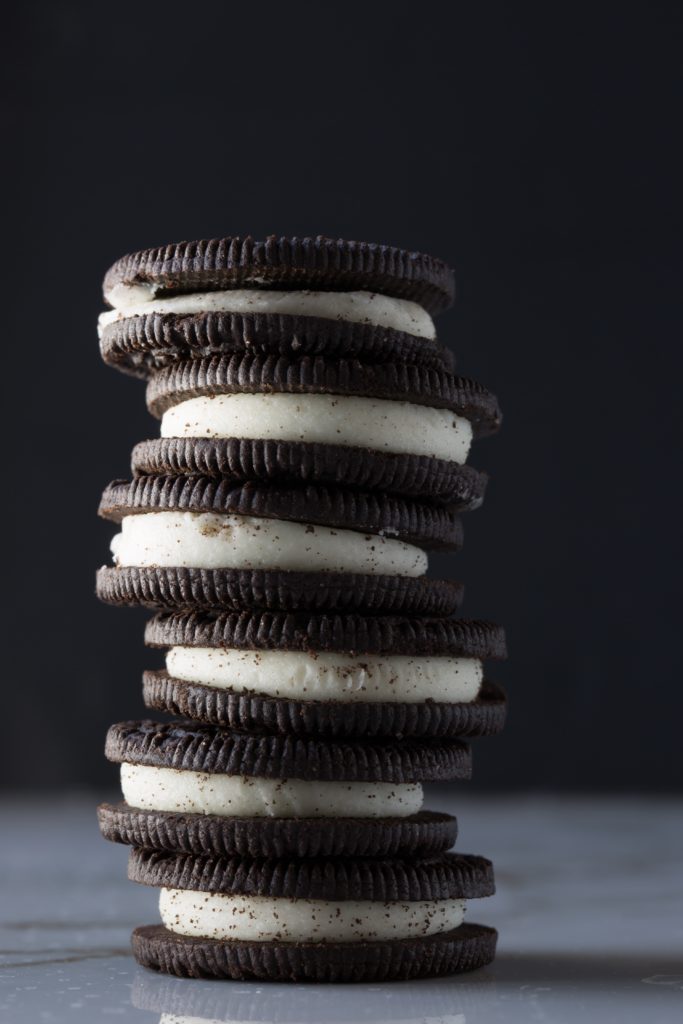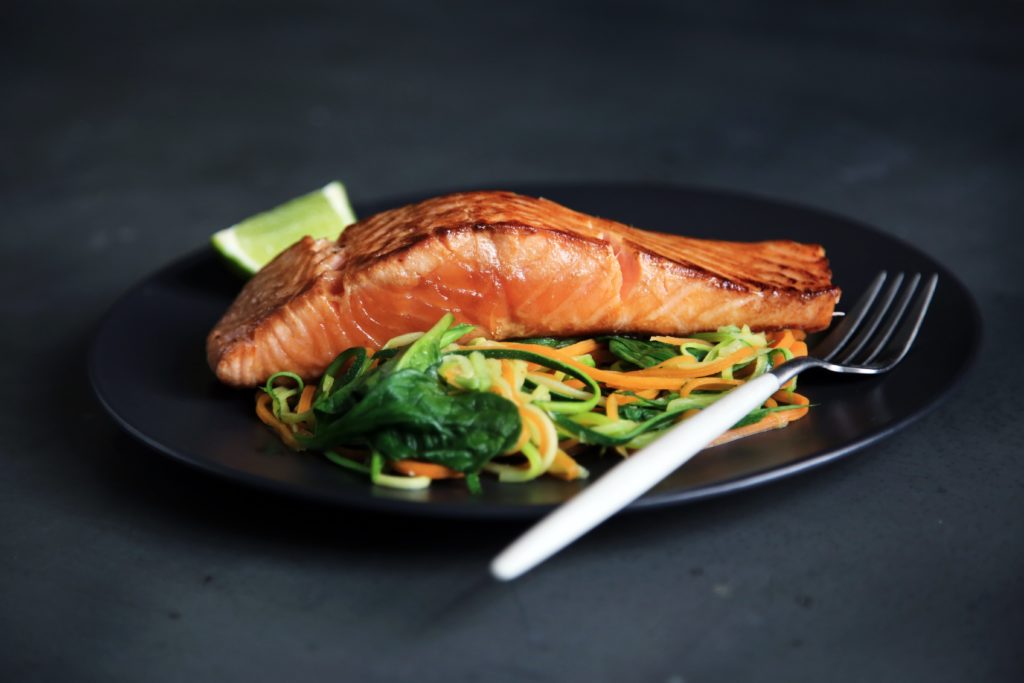
We’ve talked before about how your diet affects your microbiome, and how your microbiome affects your mood.
We’ve also talked about how eating foods rich in fatty acids helps your brain function. Since we know that your eating affects your depression—we know that… and you know that—let’s talk today about how other foods impact your mood, to either fight depression or invite it.
While we all know that sugar isn’t that healthy for you, do you know why? Do you know what it does to your frame of mind and emotions?
Inflammation
We’ve talked about inflammation before, and how it contributes to depression, and even suicidal thinking. Sounds like a dull subject? Well, look at it this way. Self indulgences like desserts, soft drinks…even the unsweetened ones…and blueberry muffins with your coffee, are making you more depressed.

Is that close enough to home?
Did you know that sugar contributes to inflammation? And if you think you’re avoiding inflammation by reaching for a diet drink, think again. Artificial sweeteners also contribute to inflammation.
Sugar and Sugar Substitutes Increase Risk of Depression
A meta-analysis by Xiaoming Bian, et al., published in Frontiers in Physiology in July 2017, showed that long term use of sucralose, which is the most widely used artificial sweetener, alters the bacteria in the microbiome. For the microbiome to function in support of your mental health, the “good” bacteria needs to be strong enough to hold the “bad bacteria” in balance.
Your eating affects your depression. And when you use Splenda, you’re actually fueling the mechanism that makes you depressed, or makes your depression worse.
And there’s more.
Sugar and sugar substitutes also increase your likelihood of developing schizophrenia. In 2004, the well-known British psychiatric researcher Malcolm Peet discovered two mechanisms where refined sugar can potentially have a toxic impact on mental health.
Sugar Interferes with Production of BDNF
To begin with, sugar stifles the activity of an extremely important growth factor in the brain, the brain-derived-neurotrophic-factor (BDNF). Now we know from our discussions of ketamine treatment that BDNF stimulates the growth of synaptic connections in the brain, which improves communication signals. And the more connections there are, the sharper your mind, the richer your associations, the brighter your mood.
However, if you’re eating a lot of sugar, the production of BDNF is reduced, which in turn reduces the growth of synapse connections, dendrites, and dendritic spines, which causes the information highway in your brain to grow darker and darker…then the signaling slows down…and your mood tanks.
We know that in depression and in schizophrenia, the BDNF level is very low. When the BDNF level remains low for an extended period of time, important brain regions begin to shrink. So it’s not too hard to connect the dots and see how you can eat a lot of sugar as a habit, and find yourself more and more depressed.
There’s a vicious cycle there. It may be tempting when you’re feeling low to eat chocolate, or cookies, or cake to cheer yourself up. But after the initial jolt of increased blood sugar, you find yourself feeling worse and worse emotionally. At which point you may be inclined to repeat the sweet treats.
Then add to that the effect of crackers and bread. These are simple starches, which saliva breaks down to sugar. And you experience the same deteriorating mood you did with all that sugar, because it’s just more of the same.
Your Eating Affects Your Depression: Sugar Consumption Stimulates a Chemical Domino Effect

In addition, when you eat lots of sugar..and in the western world the majority of us do…a domino effect of chemical reactions is instigated that leads to chronic inflammation. And that brings us full circle to the destructive force of chronic inflammation in our bodies and our minds.
If you have a history of depression or anxiety, it can be remarkably helpful to keep your microbiome balanced and strong, and to keep inflammation under control. Because you know that once symptoms emerge and increase, it can be so difficult to find the energy and initiative to take the necessary steps to get these components under control again.
And this includes processed meats. Because they’re also packed with sugar and chemicals that trigger inflammation. The safest food for strengthening your microbiome and holding inflammation at bay is to eat whole food as it’s grown naturally.
Ideally? No More Sugar Than 25 Grams/Day.
Sounds crazy? It’s so doable.
But Rome wasn’t built in a day. Baby steps. Every week, you could reduce your daily sugar intake by 1 teaspoon. Little by little. But try to be consistent. You may be flabbergasted six months from now by the difference you’ve made in the way you feel.
A study in London led by Anika Knuppel focused on 5000 men over five years who consumed over 67 gm/day of sugar. They found that these men were 1/5th more likely to develop anxiety and depression than their counterparts who consumed less than 39.5 gm/day.
So even though we all know that consuming too much sugar increases our risk for obesity, Type 2 diabetes, and cancer, it also increases our risk for psychiatric disorders, too.
More than you know, your eating affects your depression and overall wellbeing.
Nutrient Deficiencies Can Lead to Depression, Too
Things like omega 3 fatty acids, B vitamins, magnesium, and Vitamin D are all needed to maintain well being. Certainly, there are multiple factors that contribute to symptoms of disorders, including genetics, environmental factors, stress, and more. So there is not much you can do to completely prevent depression and other disorders.
But there are foods you can eat to improve your chances of staying healthier, reducing symptoms, or possibly avoiding them altogether.

The Bees
Well, ok, not the bees, or the bees knees. But rather the vitamin Bs, like B1, B2, B3, B6, B9, and B12. When your diet is low in folate (which is a B vitamin), it can increase your risk of depression and other disorders by a whopping 304%!
In 2017, a study was conducted in suicidal teens, and it happened that most of them were deficient in cerebral folate. And listen to this: all of them improved when they were treated with folinic acid.
You brain needs B vitamins. So make them part of your daily regimen to improve your mood and outlook. Because your eating affects your depression and other disorders. It just does.
Omega-3 Fatty Acids

Another thing you brain needs is omega-3s. Get it from eating wild caught Alaskan salmon, sardines, herring, mackerel, and anchovies. If you can, request an omega-3 index test to find out where you stand. In general terms, you’d like that to show 8% or higher.
Magnesium
To keep your thinking clear, your memory sharp, and your outlook bright, include a magnesium supplement that crosses the blood brain barrier. Magnesium is good for your whole body. So eating walnuts, avocados, legumes, dark chocolate, tofu, and seeds can help keep your whole body in better working order. But symptoms of depression need magnesium L-threonate. Some neuroscientists at MIT and Stanford developed that one, and it’s far more effective for your brain than nuts and chocolate.
Vitamin D

This one is needed for most chemical reactions throughout your body. In fact, vitamin D3 is especially in demand. And while you can take supplements for it, your best source for vitamin D is regular, sensible exposure to sunshine. Thirty minutes a day during mid-morning can be an effective way to build your vitamin D stores.
A double-blind randomized trial published in Y 2008 stated in conclusion that supplementing with high doses of vitamin D seems to “ameliorate symptoms indicating a causal relationship.”
It’s wise to request a vitamin D test twice a year to make sure you’re vitamin D level is 60-80 ng/ml. Tell your doctor that you know your eating affects your depression and you want to stay on top of the details.
For decades, our western society has dismissed the vital role nutrients play in our physical and mental wellbeing. At the same time, processed foods have played a larger and larger role in our overall diet primary for the sake of convenience.
But it hasn’t been without a high price. Depression has sky-rocketed in prevalence. Obesity and diabetes have almost become the norm. Only you can recover your dietary fuel by eating whole foods and paying close attention to including foods we’ve listed here, and avoiding processed foods, sugar, sugar substitutes, and fatty meats.
A Thought…
Think about this: What if treatment resistance is related to diet? Just think how much better you might feel by fueling your brain with what it needs!
At Innovative Psychiatry, we encourage our patients to give their brain the best possible opportunities to improve. With nutrients, rest, exercise, relationships, and doing things they enjoy.

And if medicines aren’t helping, if nutrients and exercise don’t help enough, we consider whether a patient is a candidate for IV ketamine treatment. Ketamine treatment isn’t for everyone, but it is effective for the majority of patients who need it. And it’s so remarkable, it can reverse their suicidal thoughts in a few hours, restore their energy for relationships, for investing in their jobs, and enjoying their hobbies. It can replace despair with hope in a big way.
If you feel like you’ve done all you know to do, including a couple or more antidepressant prescriptions for at least 3-4 months each, then call us. You just might be a candidate for ketamine infusions. And if you are, chances are that this treatment can turn your life around and set you on a path of joy.
IV ketamine treatment isn’t magic, but it can restore you to the best you remember ever being.
That’s why we’re here. Because seeing people like you get better is the whole point.

To the restoration of your best self,
